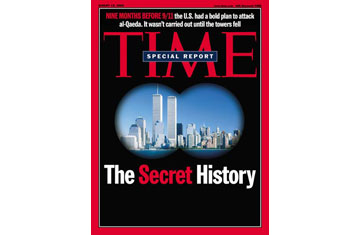
(19 of 19)
The killers had come from Europe, and they were members of a group allied with al-Qaeda. Massoud's enemies had been waiting for the news. Within hours, Taliban radio began to crackle: "Your father is dead. Now you can't resist us." "They were clever," says a member of Massoud's staff. "Their offensive was primed to begin after the assassination." That night the Taliban attacked Massoud's front lines. One last time, his forces held out on their own.
As the battle raged, Clarke's plan awaited Bush's signature. Soon enough, the Northern Alliance would get all the aid it had been seeking--U.S. special forces, money, B-52 bombers, and, of course, as many Predators as the CIA and Pentagon could get into the sky. The decision that had been put off for so long had suddenly become easy because a little more than 50 hours after Massoud's death, Atta, sitting on American Airlines Flight 11 on the runway at Boston's Logan Airport, had used his mobile phone to speak for the last time to his friend Al-Shehhi, on United Flight 175. Their plot was a go.
That morning, O'Neill, Clarke's former partner in the fight against international terrorism, arrived at his new place of work. He had been on the job just two weeks. After Atta and Al-Shehhi crashed their planes into the World Trade Center, O'Neill called his son and a girlfriend from outside the Towers to say he was safe. Then he rushed back in. His body was identified 10 days later. --Reported by Massimo Calabresi, John F. Dickerson, Elaine Shannon, Mark Thompson, Douglas Waller and Michael Weisskopf/Washington; Hannah Bloch and Tim McGirk/Islamabad; Cathy Booth Thomas/Dallas; Wendy Cole and Marguerite Michaels/ Chicago; Bruce Crumley/Paris; James Graff/Brussels; David Schwartz/Phoenix; and Michael Ware/Kabul
